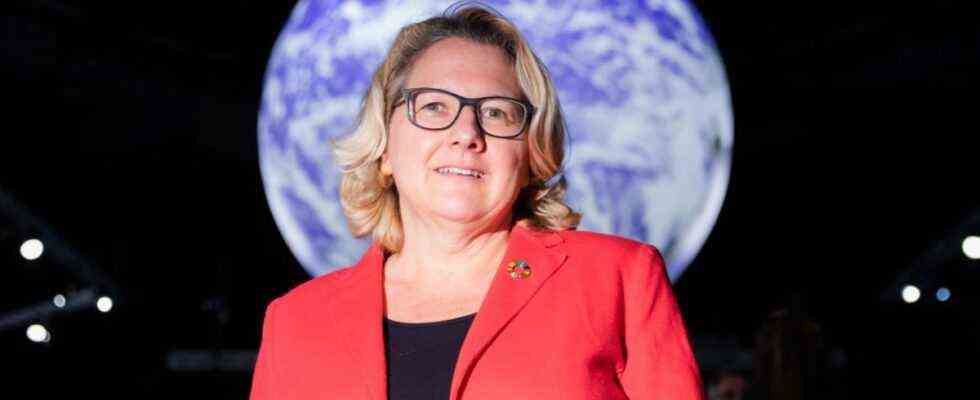Svenja Schulze has put on her sports shoes, she carries her things in a small, red leather backpack. It is the right equipment for this literal marathon that she will have to cover in the next few hours, for bilateral meetings with other ministers, for team meetings, in the plenary session of the climate summit. Presumably it will be the last one Schulze will attend as environment minister. “I can’t really imagine it yet,” says Schulze. “And yes: it hurts a little.”
The social democrat Schulze, 53, is a phenomenon of the former federal government. A great stranger when she came to Berlin, initially as familiar with environmental policy as a coal-fired power station is with climate protection. And now, at the end of her term of office, as successful as few before her in this department. How can that be done?
Schulze herself likes to refer to her perseverance at this point. However, part of the truth is that fate meant it really well with her and with climate protection in the past legislative period. It starts with the grand coalition setting up a commission to phase out coal. Suddenly those who were fighting against coal were in the spotlight; especially those in the Hambach Forest. At the same time, a young Swede inspired millions of schoolchildren. This is how the movement arose that, like a big wave, pushed Schulze’s largest project right to the front: the Climate Protection Act.
She has a certain center forward quality – and a flank giver
Schulze was able to shine with it in Glasgow these days. Saying goodbye to coal, the new German climate targets – this is certainly attracting international attention. However, the truth here, too, is that fate was once again involved. Because the first German climate package, 2019, got into the grinder of a coalition committee, also to Schulze’s regret. The Federal Constitutional Court ensured that it did not stop there: The Karlsruhe judges demanded a better law, one with more consideration for future generations. A steep template for Schulze.
There are also players in football who seemingly by chance always stand where they only have to put their foot. That has to do with talent, of course, and Schulze also has this talent – combined with a teammate who can give the right flank from all positions: her State Secretary Jochen Flasbarth. After the Karlsruhe ruling, for example, a new climate law was created in just 13 days. At that time, she had already been able to win over her cabinet colleague and party friend Olaf Scholz for climate protection. As in the SPD in general, that was hard work.
Altmaier, Klöckner, Scheuer – her colleagues in the cabinet did not make it easy for her
With some other colleagues it was even more difficult. Peter Altmaier, the economics minister of the CDU, wrote a 20-point program for climate protection, but failed to address the central points. Agriculture Minister Julia Klöckner declared the bees to be systemically relevant, but considered the farmers to be even more systemically relevant. And Andreas Scheuer, the transport minister of the CSU, posed with electric scooters and charging plugs, but politically he always tapped diesel and gasoline. It is easy to imagine that an environment minister with such colleagues needs not only a little luck but also a great deal of perseverance.
But she will hardly be able to remain Environment Minister, not in a coalition with the Greens. “Really painful,” she says. “Actually, I don’t want to leave.” But their chances of finding a new ministerial position are not bad. In North Rhine-Westphalia she was research minister and general secretary of the NRW-SPD. Either way, there is one achievement that nobody will take away from her anytime soon: She is the first female environment minister to actually achieve a national climate target. For that matter, part of the truth is: the pandemic helped her with it.

